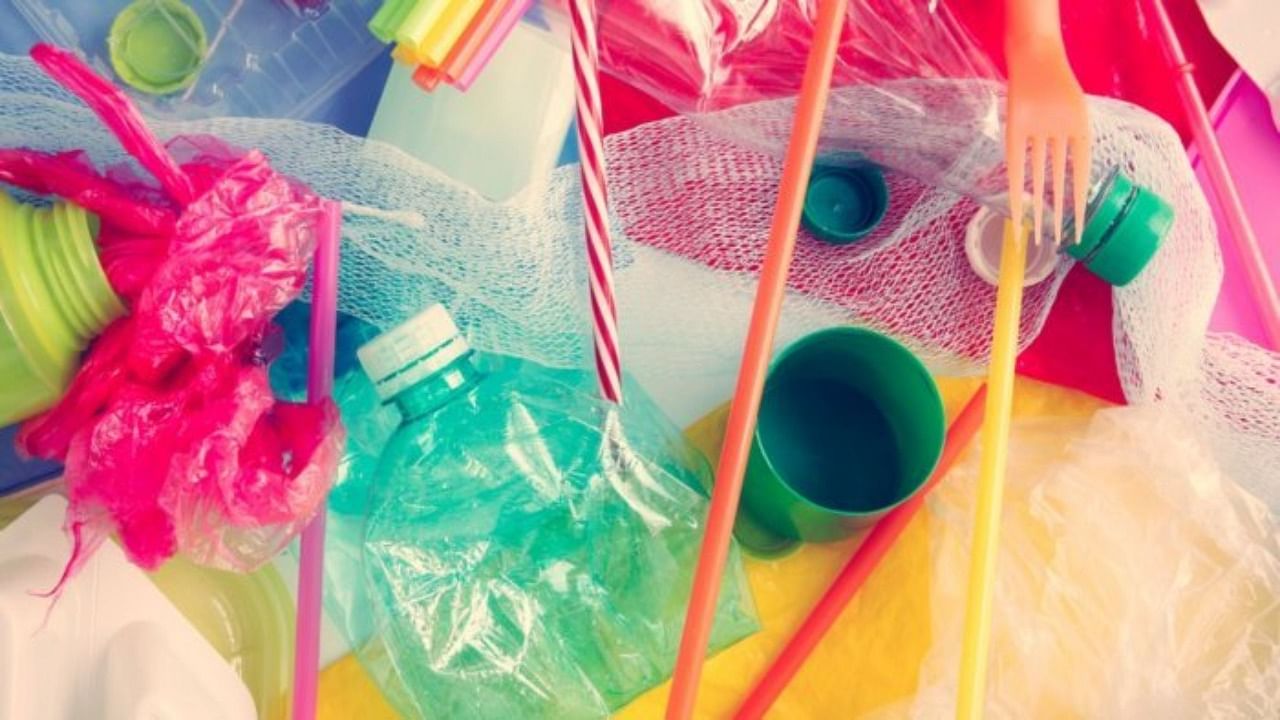
The Delhi Pollution Control Committee (DPCC) has set up a control room to monitor the implementation of the ban on 19 identified single-use plastic items and will start shutting units violating it from Monday, officials said.
The control room will receive all complaints related to the violation of the SUP ban and direct enforcement teams to take action on them, an official said on Sunday.
"Though the DPCC's mandate is to keep a check on the manufacturing of SUP items, complaints related to the violation of the ban in markets and other public places can also be sent to our control room. We will transfer it to the municipal bodies concerned," he said.
Grievances regarding the infractions can also be lodged through the Green Delhi application of the Delhi government or the "SUP-CPCB" application of the Central Pollution Control Board.
"We will start closing down units violating the ban from Monday under relevant provisions of the law. No more warning will be given," the official said.
On July 1, when the ban on the SUP items came into effect, Delhi Environment Minister Gopal Rai said the Delhi government would be lenient towards those violating the ban for the initial 10 days and focus on creating awareness against the use of such commodities and promote their alternatives.
He had said that the authorities would issue warning notices to units found violating the ban on the 19 SUP items till July 10 and punitive action would be taken thereafter against repeat offenders.
The action will include a fine of up to Rs 1 lakh or a jail term of up to five years or both under the Environment Protection Act, 1986.
The revenue department and the Delhi Pollution Control Committee have constituted 33 and 15 teams, respectively, to ensure the enforcement of the ban.
The DPCC has to ensure compliance with the ban in conforming areas, while the MCD and other local bodies are responsible for its implementation in the informal sector.
The MCD and other urban local bodies will act against the defaulting units according to their bylaws, while the revenue department will take action under the Environment Protection Act.
The SUP items seized during the enforcement drive will be incinerated in waste-to-energy plants to ensure they do not end up in landfills or clog water bodies.
In the initial 10 days, officials held meetings with industrial associations to educate and guide them about the ban.
A three-day fair was also organised at the Thyagraj Stadium here to promote alternatives to SUP items.
To spread awareness about the ban on SUP items, the Delhi government will impart training to the members of eco-clubs in the capital. The training programme will be conducted on July 19 in collaboration with the United Nations Environment Programme. There are around 2,000 eco-clubs in Delhi.
The banned items are earbuds, plastic sticks for balloons, flags, candy sticks, ice-cream sticks, polystyrene (thermocol), plates, cups, glasses, forks, spoons, knives, straws, trays, wrapping or packaging films around sweets boxes, invitation cards, cigarette packets, plastic or PVC banners of less than 100 microns and stirrers.
Plastic carry bags of thickness less than 75 microns are also prohibited under the Plastic Waste Management Rules. Their thickness will have to be increased to 120 microns from December 31.
Plastic wrapping material less than 50 microns in thickness and plastic sachets used for selling and storing tobacco, pan masala and gutkha are also not allowed.
Delhi generates 1,060 tonnes of plastic waste per day. SUP is estimated to be 5.6 per cent (or 56 kg per metric tonnes) of the total solid waste in the capital.